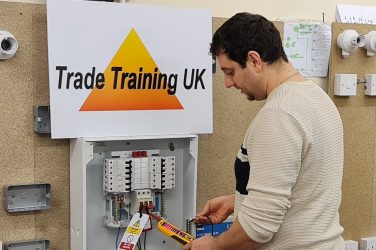Green Deal must ‘sell’ energy efficiency as way of improving domestic life – or take up won’t happen
A key assumption behind the Green Deal – that once market barriers are removed, there will be a flood of demand from UK homeowners for energy efficiency measures in their homes – is overly simplistic, according to research from the UK Energy Research Centre.
Interim findings from the VERD project, based at the University of East Anglia (UEA), cast doubt on whether this expected flood will come, for one simple reason: energy efficiency is rarely the main motivating factor for people’s decisions to renovate their homes.The team, led by Dr. George Chryssochoidis of Norwich Business School and Dr. Charlie Wilson at the Tyndall Centre for Climate Change Research at UEA, carried out an extensive review of renovation and energy efficiency studies, including those on which the Green Deal is based, a lengthy series of interviews with both renovating and non-renovating households between February and May 2012, and a nationally representative survey of over 1,000 UK homeowners (in September 2012).
They found that the biggest motivating factor in deciding to renovate is to improve domestic life, with households facing competing priorities, and those needing to extend or adapt space at home, being more likely to consider renovations. Up to a third of decisions to renovate are triggered by specific events, the most common being when something in the home needs fixing or replacing, such as a boiler or a window.
Homeowners cited contractor reliability and the avoidance of hassle and disruption to family life as the key factors in deciding for renovation. They were eight times more likely to prefer a renovation that was hassle free, and five times more likely to prefer one where the hassle was manageable, to one which was a major hassle and a big disruption to family life.
For homeowners planning to renovate, the Green Deal was an attractive option. Those planning to spend £5,000 on insulation and a boiler upgrade were more than twice as likely to consider using the Green Deal than not. The Green Deal could also be used to expand the scope of homeowners’ renovation plans. People about to go ahead with renovations were willing to consider additional energy efficiency renovations using the Green Deal to pay the upfront costs. Those planning to spend £5,000 on remodelling their kitchen were only half as likely to stick with this option when presented with the opportunity to add £5,000 of energy efficiency measures paid for through the Green Deal.
Dr. Chryssochoidis said, ‘The fundamental insight from this research is that home renovations have to be understood through the lens of normal, routine domestic life. Decisions to renovate are rooted in a need to improve the quality of life at home, rather than any burning desire to be energy efficient.
‘Homeowners’ key concerns are keeping costs down, having a reliable contractor and avoiding hassle and disruption. Green Deal providers will need to present a strong and focused ‘value proposition’ to renovators if we are to see significant take up of the Green Deal.’
Dr. Wilson added, ‘The challenge for service providers and policy makers in the Green Deal market will be to ‘sell’ or package energy efficiency measures as a solution to the trials and tribulations of domestic life, which is what really matters to homeowners.’






